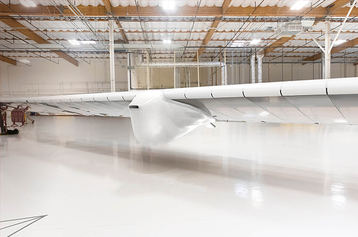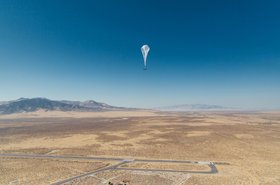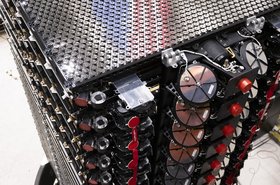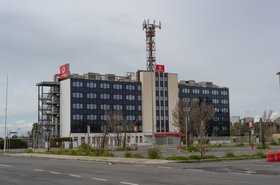SoftBank has acquired a number of patents from Alphabet’s now-defunct Loon high altitude balloon project and will be using them to further its own HAPSMobile subsidiary.
The Japanese company has acquired approximately 200 patents (including patents pending) for High Altitude Platform Stations (HAPS) from Alphabet Inc.'s Loon LLC. The patents are related to network technologies, services, operations, and aircraft for HAPS.
In January Google's parent company said it was closing down its Loon subsidiary, saying that that the project hadn’t found a way to lower costs enough to build a long-term, sustainable business.
“Developing radical new technology is inherently risky, but that doesn’t make breaking this news any easier. Today, I’m sad to share that Loon will be winding down,” Alastair Westgarth, chief executive of Loon, said at the time.
Loon raised $125 million from SoftBank in 2019, but the telco had also set up its own HAPS firm before that.
Set up in 2017 and part-owned by US military drone firm AeroVironment, HAPSMobile is developing a solar-powered fixed-wing HAPS platform from which to offer connectivity services. The company has done five successful test flights of a 78m wingspan drone and aims to begin commercial operations – mostly in the form of wholesale services to operators – around 2023.
SoftBank said it and HAPSMobile will collectively own around 500 HAPS-related patents, including patents pending, once the deal is completed.
The companies said they will utilize the expanded patent portfolio to accelerate preparations for commercial HAPS services, as well as promote standardization and interoperability in the HAPS industry.
In a separate statement, Alphabet's X Labs said it was making a non-assertion pledge for the free use of 270 patents and applications related to launching, navigation, fleet management, and more to support further work in the field. It also said high-altitude balloon developer Raven Aerostar was taking over a number of patents.
In April 2019, HAPSMobile and Loon formed a strategic relationship, and a year later jointly completed development of a communications payload, which was used to deliver LTE connectivity from HAPSMobile's solar-powered Sunglider platform during a test flight.
Project Loon began as a ‘moonshot’ idea under Google’s X skunkworks lab in 2011 before being spun out in a separate business unit under parent company Alphabet in 2018.
The aim was to use high-altitude balloons in the stratosphere at an altitude of 18-25 km (11-16 miles) and create an aerial wireless network to deliver the Internet to remote and rural communities.
As well as helping provide connectivity in the wake of natural disasters in Puerto Rico in 2017 and Peru in 2019, Loon ran pilots in New Zealand, Shri Lanka, and Brazil, and managed to achieve a flight duration of 312 days for a single balloon. The company announced its first commercial agreement with Telkom Kenya in 2018.
A number of experts have told DCD that they felt Loon was always going to struggle to make the business work, as solar-powered balloons were a difficult form factor from which to provide continuous high-powered connectivity solutions.
SoftBank has also invested across a number of other sky-based companies; as well as HAPS, it has investments in both Low Earth Orbit LEO and Geosynchronous Earth Orbit (GEO) satellite firms and even aerostats (tethered blimps). In June, the company launched what it called a Non-terrestrial Network (NTN) service to provide connectivity solutions from above.








